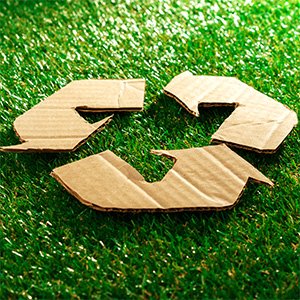Join Ed and Ron for a deep dive on the problems with Environmental, Social, and Governance (ESG) standards, or lack thereof. ESG has replaced the Triple Bottom Line and began to receive global attention due to the United Nations Principles for Responsible Investment (PRI) report, and is seen as a means for advancing the UN’s Sustainable Development Goals (SDGs). The SEC is now proposing regulations that will force public companies to disclose environmental risk factors, at tremendous cost. What could go wrong? Quite a lot. Metrics for ESG are completely subjective, nor grounded in empirical reality as demonstrated when three different ESG watchdogs rated Tesla: Best, Worst, and Middling. How helpful. If an oil company is rated, it is automatically Worst (unless it is Gazprom in Russia, which received a very high ESG rating before the Ukraine invasion), even though oil companies saves countless lives every single day. For all these reasons and more, we dissent from the hokum being pushed by advocates of ESG.
Here are the show notes. Use these to follow along while listening to the show:
Before we get into the show today, let’s be clear: The TSOE hosts do not hate the environment, nor do they hate social initiatives, nor do they hate social governance. The ESG movement is the issue at hand.
ESG first gained global attention in 2006 as a part of the United Nations sustainable development goals. In 13-14, businesses started to take ESG more seriously which led to heightened business activities and investments.
Now we have ESG ratings agencies, watchdogs, and consultants. BDO.com/resources/esg is an example of this. They are “committed to making ESG synonymous with BDO”
Regarding ESG - “Some companies have simply rebranded older existing funds as green”. Read more at this WSJ article: “Funds Go Green, but Sometimes in Name Only” https://www.wsj.com/articles/funds-go-green-but-sometimes-in-name-only-11631179801
Here is an ESG related question posed by Ron on the show today: Do companies perform better because they are socially conscious?
At a certain level, our Patreon members get a shout out. Like Mark Gandy (@g3cfo) of CFOBookshelf.com. Check out his podcast as well! And then join us at Patreon.com/TSOE
Ron mentioned a whole list of S&P 500 indicators for ESG on the show. Check out this National Review article for more details: https://www.nationalreview.com/2022/04/esg-a-ratings-agency-and-utah/
Something that needs to be said: ESG investments (like Blackrock’s fund) make money irrespective of the performance of the investments.
Around the 1850s, limited liability companies were created (to…limit liability) but in return they were told, “stay in your lane and serve your shareholders.” The assumption was this would keep organizations from getting too big and dominating politics. It was a very clever structure.
ESG is going to deal with all of these things — human rights, sustainable finance, social exclusion, climate change — using subjective measures. How do these subjective measures change things?
Thomas Sowell: “There Are No Solutions, Only Trade-offs” https://www.youtube.com/watch?v=3_EtIWmja-4
Did you know that your written rating of our podcast will be read on the air? Tap this link and spend 15 seconds rating The Soul of Enterprise RateThisPodcast.com/TSOE
The purpose of a business is NOT to make a profit. Profit is the result.
Even those in favor of ESG will say, “ESG is necessary but it’s not sufficient.”
Tesla has received three ESG ratings: one is the best, one the worst, and one in the middle. As an investor, what can you do with that information?
Gazprom has been given a higher ESG rating than ExxonMobil. Did these rating agencies take into account the Ukraine war? Or the annexation of Crimea before that?
Ed mentioned scope 1, 2 and 3 on the show today. Here is a quick overview from Deloitte. https://www2.deloitte.com/uk/en/focus/climate-change/zero-in-on-scope-1-2-and-3-emissions.html
ESG funds are pouring into China even though China on the environment, on social, and on governance…..is horrific.
The uncertainty and subjectivity of ESG ratings is ultimately at the heart of our show today. For example, climate models have a tremendous amount of uncertainty before they are even applied.
Ed had some fun with the various individual carbon footprint calculators:
Climatehero.me - 20.8 tons of CO2 per year
EPA - 23 tons of CO2 per year
Nature.org - 87 tons of CO2 per year
Henkel - 17.9 tons of CO2 per year
We closed our show today with a quote from Woke, Inc by Vivek Ramaswamy: “We’d be strictly better off if companies and their customers ended the shared fiction that every capitalist transaction must also be part of some grand fight between good and evil.”
One of our excellent Patreon sponsors, @90Minds, is holding their annual meeting next week and we will be LIVE ON SITE during the show! Looking forward to it!
Bonus Content is Available As Well
Did you know that each week after our live show, Ron and Ed take to the microphone for a bonus show? Typically, this bonus show is an extension of the live show topic (sometimes even with the same guest) and a few other pieces of news, current events, or things that have caught our attention.
This week was bonus episode 390 - “Transfer NOT Cancel Student Debt”. Here are a few links discussed:
Click the “FANATIC” image to learn more about pricing and member benefits.



